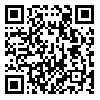Volume 20, Issue 4 (Winter 2013)
Journal of Translational Medical Research. 2013, 20(4): 383-392 |
Back to browse issues page
Download citation:
BibTeX | RIS | EndNote | Medlars | ProCite | Reference Manager | RefWorks
Send citation to:



BibTeX | RIS | EndNote | Medlars | ProCite | Reference Manager | RefWorks
Send citation to:
omidi A, Mohammadi A, Zargar F, Akkasheh G. Comparing the efficacy of combined Mindfulness Based Cognitive Therapy with Cognitive Behavioral Therapy and Traditional Cognitive Behavior Therapy in reducing dysfunctional attitudes of patients with Major Depressive Disorder. Journals of Birjand University of Medical Sciences 2013; 20 (4) :383-392
URL: http://journal.bums.ac.ir/article-1-1164-en.html
URL: http://journal.bums.ac.ir/article-1-1164-en.html
1- Department of Clinical Psychology, School of Medicine, Kashan University of Medical Sciences, Kashan, Iran.
2- Department of Psychiatry, School of Medicine, Tehran University of Medical Sciences, Tehran, Iran ,amohammadee@gmail.com
3- Department of Psychiatry, School of Medicine, Kashan University of Medical Sciences, Kashan, Iran.
2- Department of Psychiatry, School of Medicine, Tehran University of Medical Sciences, Tehran, Iran ,
3- Department of Psychiatry, School of Medicine, Kashan University of Medical Sciences, Kashan, Iran.
Abstract: (19628 Views)
Background and Aim: Major depressive disorder is the most common psychiatric disorder having frequent relapse. One of the aspects of the pathology of depression is dysfunctional thoughts and attitudes in individuals. Cognitive - behavioral therapy (CBT) is the most widely used treatment in the active phase of the disorder and mindfulness-based cognitive therapy (MBCT) is a new treatment in the prevention of recurrence of major depressive disorder. The present study aimed at comparing the efficacy of combined MBCT with CBT and Traditional CBT in reducing of dysfunctional attitudes of patients with Major Depressive Disorder. Materials and Methods: This clinical-experimental study was done on 90 patients randomly selected from 160 cases referring to Tehran University Consultation Centers, Shahed University and Saba Rehabilitation Clinic, all of whom met DSM-IV criteria for Major Depressive Disorder. They were divided into 3 equal groups including CBT, MBCT combined with CBT, and TAU (Treatment As Usual). The first and the second groups received psychological treatment while the third one received medications. Their age ranged between 18 and 45 years with two depression episodes and evaluated through the Structured Clinical Interview for DSM-IV (SCID) and self–report according to Beck Depression Inventory II (BDI-II), during two pre - and post tests. The obtained data was analyzed by means of co-variance analysis. Results: Dysfunctional attitudes scores and depression symptoms significantly decreased in combined MBCT with CBT group, while in the TAU group, there was no significant difference between pre-test and post-test. Conclusion: MBCT combined with CBT has similar effects to classic CBT and it can lead to reducing dysfunctional attitudes and depression symptoms.
Keywords: Mindfulness Based Cognitive Therapy, Major Depressive Disorder, Cognitive-Behavior Therapy, dysfunctional attitudes
Type of Study: Original Article |
Subject:
Clinical Psychology
Received: 2012/07/15 | Accepted: 2013/12/30 | ePublished: 2014/03/5
Received: 2012/07/15 | Accepted: 2013/12/30 | ePublished: 2014/03/5
Send email to the article author
| Rights and permissions | |
 |
This work is licensed under a Creative Commons Attribution-NonCommercial 4.0 International License. |





